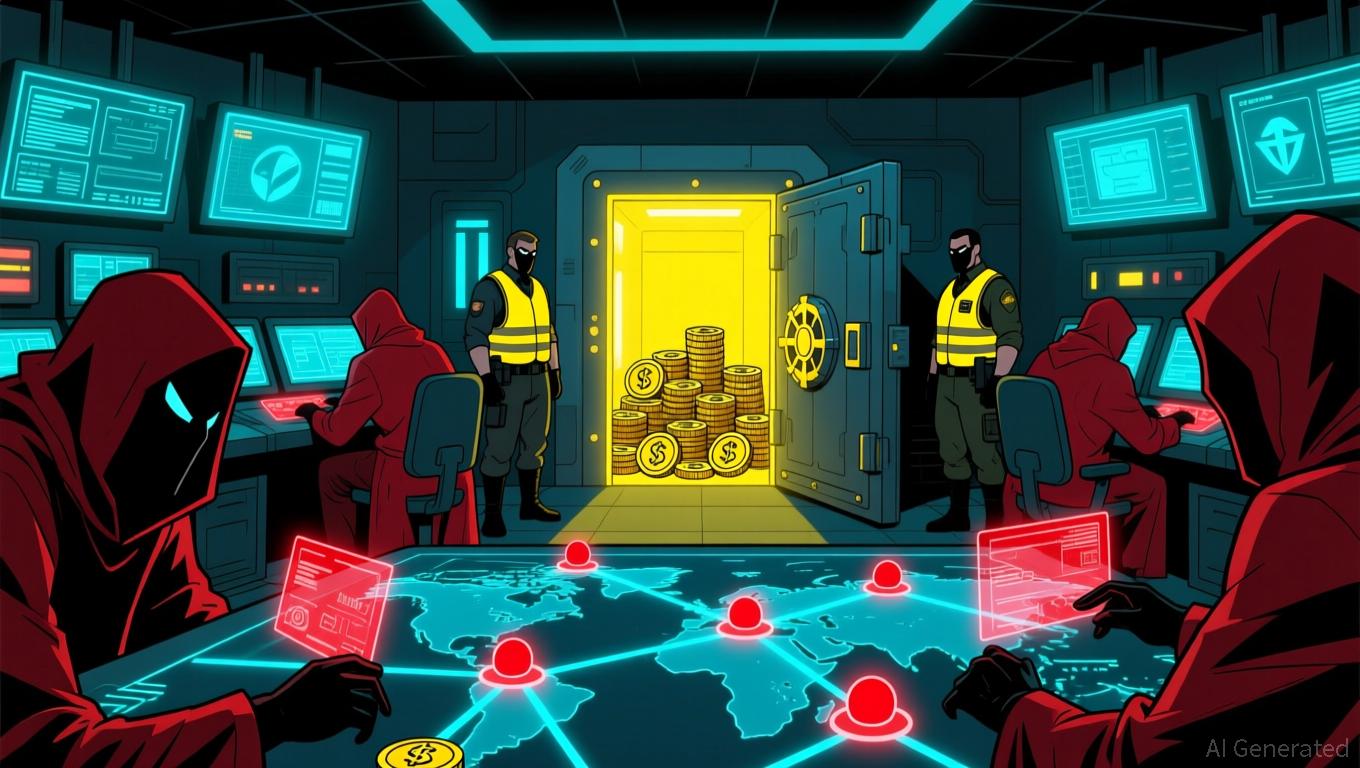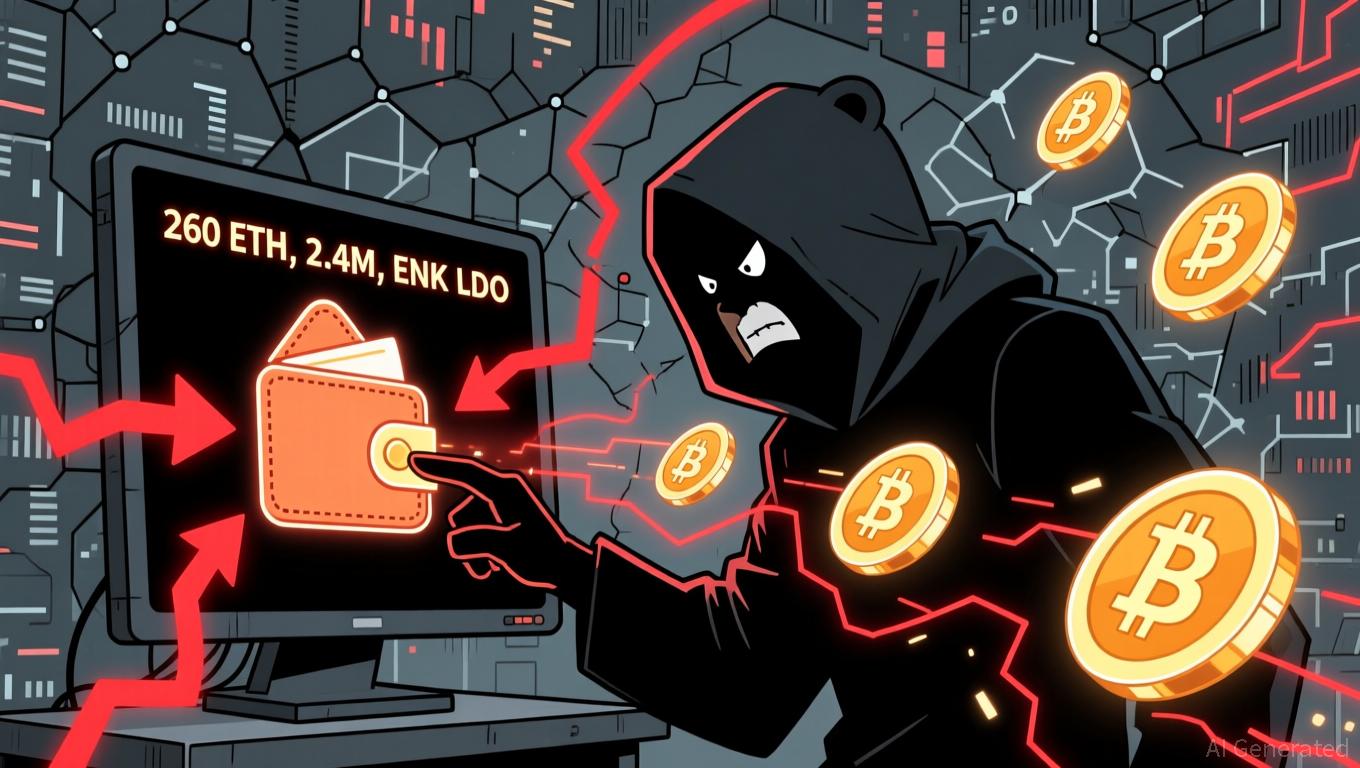DOJ Cracks Down on North Korea's Cryptocurrency Network by Seizing $15M in Tether
- U.S. DOJ seized $15M in Tether linked to North Korean hackers, targeting sanctions-busting crypto operations via stolen identities and remote work schemes. - APT38 group and "domestic helpers" facilitated DPRK fund siphoning, masking IP addresses and routing payments to evade sanctions. - The crackdown highlights rising stablecoin risks, regulatory scrutiny, and cross-border efforts like the U.S.-Thailand $12M USDT seizure. - Investors face increased volatility and compliance costs, while Trump's crypto
The U.S. Department of Justice has confiscated $15 million worth of Tether's
The Justice Department’s intervention targets North Korea’s exploitation of stolen American identities and remote work arrangements to divert money from U.S. businesses. These so-called “domestic helpers” helped North Korean operatives secure jobs, disguise their online locations, and funnel salaries into financial channels linked to the Democratic People’s Republic of Korea (DPRK).

This enforcement wave draws attention to the increasing risks facing stablecoins like USDT, which are vital for trading and settlements on offshore platforms. Regulators are putting these assets under greater scrutiny for their potential role in illegal finance, and the DOJ’s actions show that on-chain assets are not immune to law enforcement. For the market, the trend of freezing and confiscating crypto assets brings three main challenges:
In addition, the Trump administration’s suggestion to create a federal “bitcoin strategic reserve”—holding seized digital currencies as long-term assets—adds further uncertainty. Although the proposal seeks to avoid selling off confiscated coins, there are still unresolved legal issues, such as the need for congressional approval.
International collaboration is also ramping up. A recent joint operation between the U.S. and Thailand resulted in the seizure of $12 million in USDT from a Southeast Asian scam syndicate, illustrating the growing cross-border fight against crypto-related crime.
For crypto investors, the DOJ’s recent actions point to a changing environment. While short-term volatility and compliance expenses may increase, ongoing crackdowns on state-sponsored theft could ultimately boost confidence in blockchain markets. The North Korea case, however,
Disclaimer: The content of this article solely reflects the author's opinion and does not represent the platform in any capacity. This article is not intended to serve as a reference for making investment decisions.
You may also like
JPMorgan is unwilling to cover the legal expenses of Frank founder Charlie Javice
Ethereum Updates: Arthur Hayes Sells $2.45M ETH/DeFi Holdings, Indicating Negative Market Sentiment
- Arthur Hayes sold $2.45M in Ethereum and DeFi tokens, including 260 ETH and 2.4M ENA, signaling potential bearish sentiment. - Blockchain analysts highlight risks of price dips as large ETH sales often trigger short-term market declines, with $3,000 support levels under scrutiny. - Simultaneous offloading of AAVE, UNI, and LDO tokens suggests profit-taking amid rising traditional finance rates and DeFi liquidity shifts. - Zcash (ZEC) whale activity and leveraged ETH short positions further amplify crypto

Anthropic Claims Cyberattack Involved AI, Experts Express Doubts
- Anthropic claims Chinese state hackers used AI to automate 80-90% of a cyberattack targeting 30 global entities via a "jailbroken" Claude AI model. - The AI-generated exploit code, bypassed safeguards by fragmenting requests, and executed reconnaissance at unprecedented speed, raising concerns about AI's dual-use potential in cyber warfare. - Experts question the validity of Anthropic's claims while acknowledging automated attacks could democratize cyber warfare, prompting calls for stronger AI-driven de

AAVE Drops 13.95% Over 7 Days Amid Strategic Changes Triggered by Euro Stablecoin Regulatory Approval
- Aave becomes first DeFi protocol to secure EU MiCA regulatory approval for euro stablecoin operations across 27 EEA states. - The Irish subsidiary Push Virtual Assets Ireland now issues compliant euro stablecoins, addressing ECB concerns about USD-dominance in crypto markets. - Aave's zero-fee Push service generated $542M in 24-hour trading volume, contrasting with typical 1-3% fees on centralized exchanges. - With $22.8B in borrowed assets, the platform's regulatory milestone is expected to accelerate a